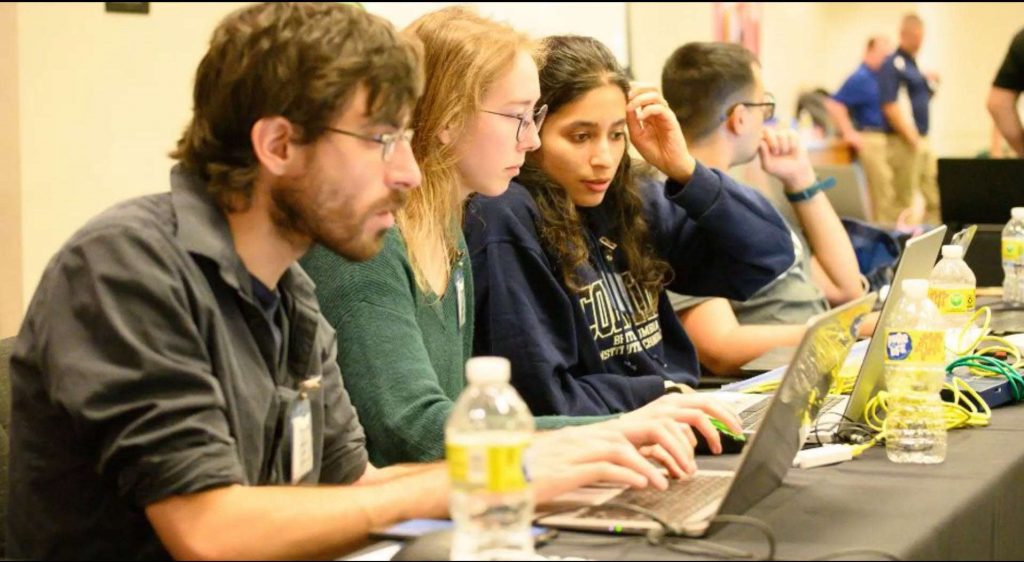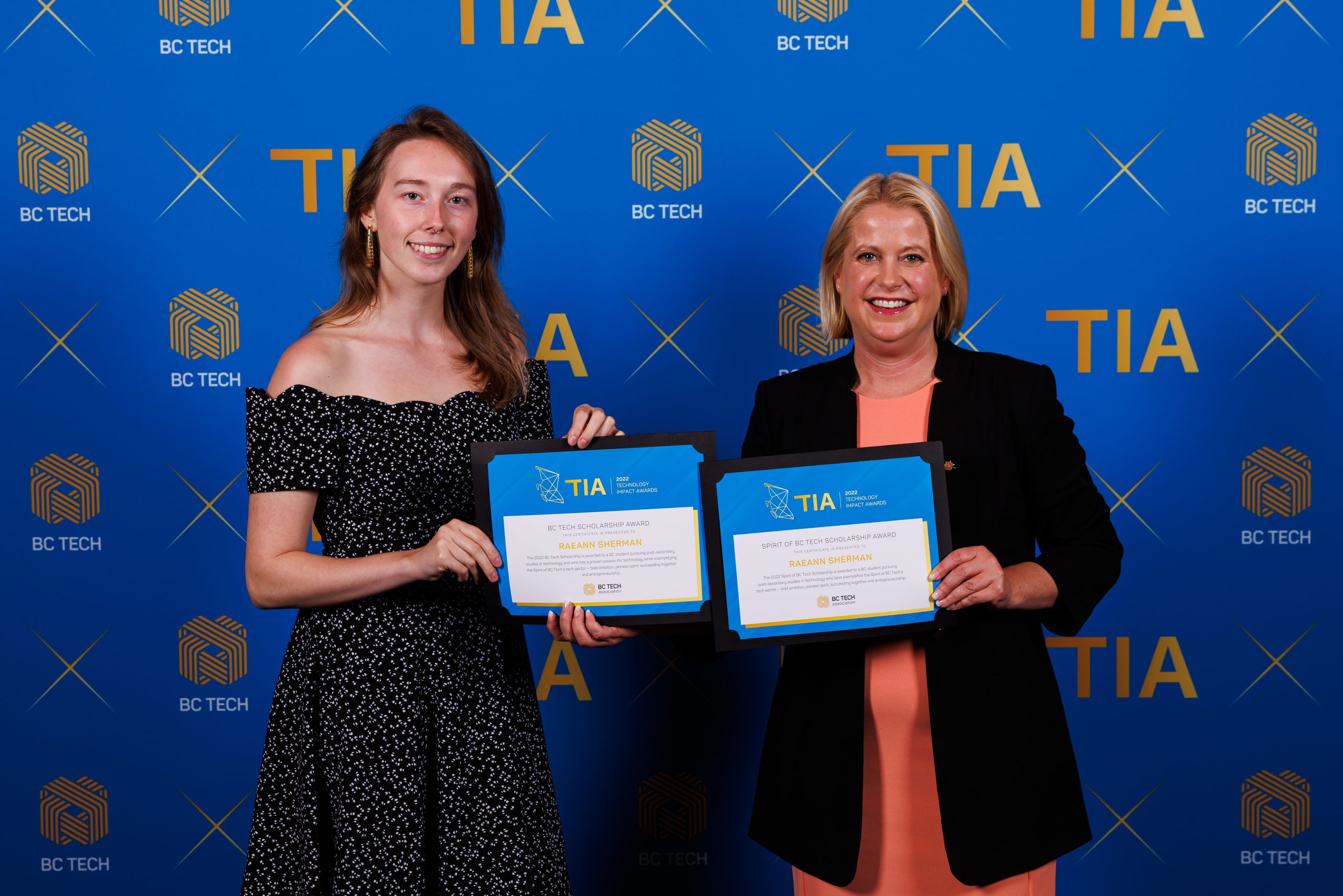We love catching up with our alumni, to talk about life after BCIT, their careers, and what tips they might have for prospective and current students. In this Q&A, meet Digital Forensics and Cybersecurity award-winning grad Raeann Sherman, who graduated with a Bachelor of Technology in June 2023.
What led you to BCIT?
Initially, I went to Thompson Rivers University in Kamloops for a Bachelor in Computing Science. However, after an informational interview and later a Co-op with the British Columbia Lottery Corporation (BCLC) cybersecurity team, I was motivated to get specialized cybersecurity and digital forensics education. BCIT is one of the only universities with a cybersecurity-related degree – so it was a no-brainer.
What gets you excited about forensics?
I’ve always been interested in working with computers, and after doing my Co-op at BCLC, I realized you’re constantly learning in cybersecurity. Every day is different, and you always have to keep up with new developments. I love learning new things and developing my skill set, so once I got a taste of cybersecurity at BCLC, I decided to get my specialized education at BCIT.
What were your first impressions of BCIT?
Going from Kamloops to Burnaby was a bit of a shock at first. I had never been on a SkyTrain, for example, so learning to navigate the city was challenging.
Although it was tough at first, my classmates were awesome. I’ve made some great friends and lots of good connections as well. I’m also very thankful for the Program Coordinator, Raymond Yu. He makes an effort to ensure we’re all taken care of, and it was a great experience to be part of his program.
Anything that you had to adapt to during the program?
After a few classes, Covid started, and we all quickly transitioned to online. That sucked because it took away from the social aspect of school. You don’t get to go in and see your classmates as much. But we made an effort to communicate online and would get together and hang out outside of school.
The good thing about Covid, though was we had to learn how to set up our cybersecurity lab environment at home. Knowing how to set up a virtual machine is valuable within the cybersecurity world because it allows you to practice offensive and defensive cybersecurity techniques.
What was a highlight during the program?
I loved learning from my professors, who were all very knowledgeable, and I was lucky to have had a lot of opportunities from being at BCIT. For example, the ‘Capture the Flag’ challenge in Florida was such a cool experience.

I was also lucky to receive several awards, such as the BC Tech Scholarship (see also the photo at the top), the Dean’s Award, and the BCIT Bachelor of Technology Achievement Award in Forensic Investigation. I received these awards as a result of my ambition, performance, and work ethic in my schooling and career. It felt amazing to be recognized for my achievements.
What are you doing now?
After graduating, BCLC offered me a full-time position at their Vancouver branch. In my role, I don’t work directly with the lottery systems, but we have a part in helping to design secure infrastructure. We are consulted with how systems integrate and the protection of the data when it’s in transit and when sitting on a system. I’ve also done quite a bit of security awareness within the company.
One of my ‘Capture the Flag’ team members – Gary Khodayari – is now also a colleague of mine. There was a posting available, so I put in a good word for him with my manager, and now I get to work with him, so that’s pretty cool.
Eventually, I might be interested in becoming a manager. Still, first, I want to get lots of technical experience because it seems like the more you learn cybersecurity, the more you realize you don’t know anything. So I’m still kind of at that stage in my career.
What kind of advice would you give prospective students?
Familiarizing yourself with fundamental cybersecurity and digital forensics concepts is a great way to prepare for the program. There are tons of great cybersecurity channels on YouTube. My favourites are John Hammond and Black Hills Information Security.
There are also websites with ‘Capture the Flag’ challenges like ‘Hack the Box’ and ‘Try Hack Me’. These are great for having fun with cybersecurity and still learning about the fundamentals.
Lastly – play around with your files. You can learn a lot about metadata if you download a Hex Viewer or use the tools available in Kali Linux.
Do you have any tips for students landing their first Forensics-related job?
Get an informational interview! For me, this has worked out amazingly. It will not only help you learn whether you want a job in this field, but it’s also a great way to get your name out there and show your passion for the subject.
While talking with BCLC, they realized they should have a Co-op position. So, one of the team members worked hard to get it created.
After staying in touch with the team for a year or so, I was told the position would be posted. I think they had around fifty applicants for the role, but I ended up getting the job. That spurred me on to continue my cybersecurity education with BCIT, then work part-time for BCLC and eventually get hired full-time.
I probably wouldn’t be where I am now if I had never reached out for the informational interview. It’s crazy how things happen and how it’s all played out.
Subscribe to the twice-annual Investigator Newsletter to keep up with the latest from BCIT Forensics.
